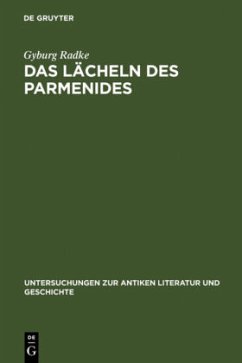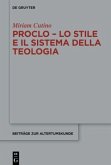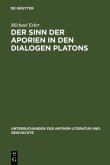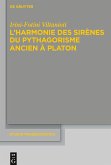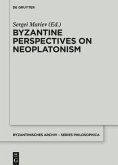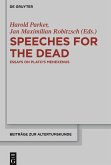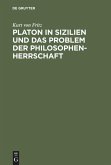'The literary form is the true contents of Plato's dialogues' - This thesis has heralded a new direction in Plato research over the last 25 years, particularly among Anglo-American scholars. This book discusses this modern thesis and its claim to mark a revolutionary turn from traditional interpretations of Plato, which since the Ancient Neo-Platonists have read Plato in a dogmatic fashion and neglected the form of his philosophy. Here, the interpretations by Proclus, the most significant Neo-Platonist since Plotinus, of the literary form of Plato's philosophy, are presented in detail for the first time as an alternative to modern approaches. Thus it can be shown that the charge is untenable that these are naive and dogmatic and constrain the openness of Plato's philosophizing with their systematicity.
'Die literarische Form ist der wahre Inhalt der Platonischen Dialoge.' - Mit dieser These hat sich in den letzten zweieinhalb Jahrzehnten eine neue Richtung vor allem in der anglo-amerikanischen Platonforschung durchgesetzt. Das Buch diskutiert diese moderne These und ihren Anspruch einer revolutionären Wende gegenüber der traditionellen Platondeutung, die seit dem antiken Neuplatonismus Platon dogmatisch gelesen und die Form seiner Philosophie vernachlässigt habe. Erstmals werden die Interpretationen, die Proklos, der bedeutendste Neuplatoniker nach Plotin, zur literarischen Form der Philosophie Platons vorgelegt hat, detailliert und als Alternative zu modernen Zugangsweisen präsentiert. So kann gezeigt werden, dass der Vorwurf, diese seien naiv dogmatisch und überformten das offene Platonische Philosophieren durch ihre Systematik, nicht haltbar ist.
'Die literarische Form ist der wahre Inhalt der Platonischen Dialoge.' - Mit dieser These hat sich in den letzten zweieinhalb Jahrzehnten eine neue Richtung vor allem in der anglo-amerikanischen Platonforschung durchgesetzt. Das Buch diskutiert diese moderne These und ihren Anspruch einer revolutionären Wende gegenüber der traditionellen Platondeutung, die seit dem antiken Neuplatonismus Platon dogmatisch gelesen und die Form seiner Philosophie vernachlässigt habe. Erstmals werden die Interpretationen, die Proklos, der bedeutendste Neuplatoniker nach Plotin, zur literarischen Form der Philosophie Platons vorgelegt hat, detailliert und als Alternative zu modernen Zugangsweisen präsentiert. So kann gezeigt werden, dass der Vorwurf, diese seien naiv dogmatisch und überformten das offene Platonische Philosophieren durch ihre Systematik, nicht haltbar ist.
Perlentaucher-Notiz zur NZZ-Rezension
Bemerkenswert scheint Rezensent Rafael Ferber diese Studie über Platons Dialog "Parmenides", die Gyburg Radke vorgelegt hat. Angesichts der Vielzahl unterschiedlicher Interpretationen des Dialogs unterstreicht er den Deutungsansatz der Autorin: Diese knüpfe an den Kommentar des Neuplatonikers Proklos (410-485 n. Chr.) an, der nur eine korrekte Interpretation des "Parmenides" zulässt. Danach sind die in dem Dialog durchgespielten Überlegungen zum Begriff des Einen als Beschreibung der verschiedenen Seinsstufen zu verstehen, die dem Prinzip des göttlichen Einen entspringen. Ferber lobt diese "Revitalisierung" von Proklos' Kommentar und bescheinigt der Autorin eine gründliche Auseinandersetzung mit der Forschungsliteratur.
© Perlentaucher Medien GmbH
© Perlentaucher Medien GmbH

